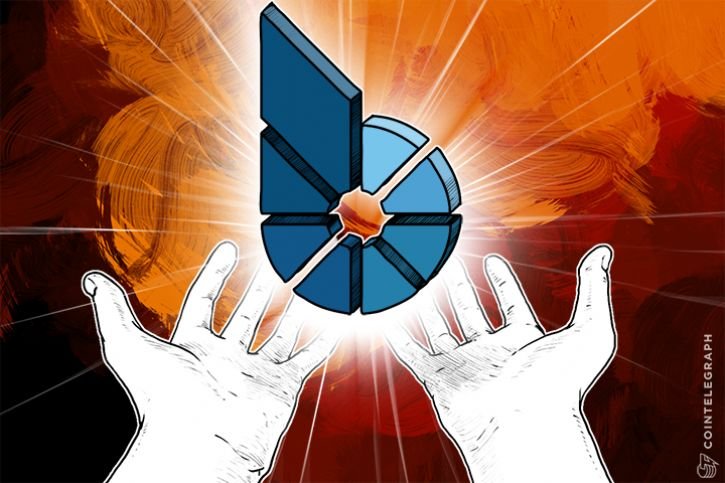
BitShares is an open-source, public, blockchain-based, real-time financial platform. It provides a decentralised asset exchange – similar to NYSE but for cryptocurrencies and without the need to trust a central authority to handle all the funds – that facilitates trading using an international network of computers, in which anyone can take part. BitShares also provides a cryptocurrency token called "BTS", which can be transferred between accounts and is used to collect fees for network operations and as a collateral for loans.
BitShares is a decentralized exchange platform for trading cryptocurrencies without leaving the blockchain.
Trustless, fast, and able to scale with use, BitShares is a decentralized exchange platform aiming to destabilize the way we currently buy and sell cryptocurrencies. Not content with users having to convert to fiat currencies (like USD and EUR) in order to stabilize their investments, BitShares has created an exchange platform built on the blockchain.

BitAssets – these market-pegged assets become “smart currencies,” pegged by market forces to underlying fiat currencies (USD, EUR, CNY) or commodities like gold and silver. This provides stability, allowing merchants to hold the currency rather than selling it quickly to avoid volatility of first-generation crypto currencies like bitcoin.
The ability to hold between transactions minimizes the taxes, fees and counterparty risks incurred going into and out of fiat in search of stability.
“[Bitshares’] security costs are a tiny fraction of [Bitcoin] and transactions are confirmed in an average of five seconds.”
Industrial strength – I love Bitcoin, but it wastes hundreds of millions of dollars annually on miners it pays to secure the network and often takes more than an hour to confirm a transaction. This is not a very practical solution for real world asset trading. BitShares is a platform for deploying profitable businesses with low overhead. Its security costs are a tiny fraction of this and transactions are confirmed in an average of five seconds.
Functionality – the key functionality of Bitcoin and most of its clones is, in essence, a new form of checking account that has no counterparty risk. BitShares goes beyond that basic service to provide a wide range of other counterparty-free financial services. BitShares takes Bitcoin’s concept of an incorruptible public ledger and applies it to many profitable business models.
CT: Does BitShares offer a native currency, or just futures contracts?
KC: Yes, the native currency is called bitshares (BTS). Viewed as a mere currency, it is every bit as volatile as first-generation currencies like bitcoin. But, viewed as equity in BitShares the unmanned company, BTS value is derived from demand for the company’s incorruptible products and services.
So BTS makes an excellent form of collateral with which to back stable smart currency derivatives and other financial products.
“BitShares derivatives have zero counterparty risk, and that makes all the difference.”
CT: Derivatives trading has a bad name after the 2008 tax-backed bailouts of bad financial actors. Why is derivatives trading with BitShares different?
KC: Derivatives have gotten a bad reputation because of the corrupt ways in which the world’s financial institutions have implemented them. Many are backed by little – if any – collateral, and there is no transparency about where all the counterparty risk may lie.
The blockchain eliminates these opportunities for abuse through transparent backing by 200% or more collateral enforced by incorruptible open source software. BitShares derivatives have zero counterparty risk, and that makes all the difference.
CT: Do any merchants accept bitshares for payment?
KC: A few are beginning to, but we see this as Stage Two of the evolution of BitShares. Right now, we are positioning BitShares as a decentralized exchange free of counterparty risks and the costs of trading in and out of fiat all the time.
It is not starting out competing with Bitcoin; it is offering traders and all centralized exchanges a way to protect themselves from being compromised by hackers, bad employees, and corrupt governments like we've seen with Mt Gox, BitStamp and BTER.
How is BitShares different from bitcoin?
Unlike bitcoin, BitShares’ main goal is not to be a peer-to-peer currency, but a fully-fledged exchange system with value tokens (such as BitUSD or BitGold) tied to real-life assets.
The BitAsset
The disadvantage of online exchanges is that they are centralized systems. The database is stored on servers controlled by the exchange alone, and you need to create verified accounts to use its services, usually involving scanning your passport or driving license. Bitcoin and altcoins are still relatively young concepts and still suffer from wild swings. For this reason, while they may offer good investment opportunities, there remains a need for a way to convert cryptocoins into a stable asset – often USD. This helps investors to stabilize their investment when the cryptocurrency loses value, for example. Exchanges serve this need by allowing users to buy and sell cryptocoins by converting from and to USD, EUR, and most other common fiat currencies.
BitAssets are BitShares’ answer to the disadvantages of exchanges. A BitAsset is a coin pegged to a real-life asset. Its value mirrors that real-life asset’s value. For example, the BitAsset BitUSD follows the value of USD. This way, you can convert your BTS into BitUSD, the same way you would convert BTS to USD, without leaving the blockchain itself. This keeps your anonymity, is instantaneous and costs less in transaction fees.
Hi! I am a robot. I just upvoted you! I found similar content that readers might be interested in:
https://cointelegraph.com/news/bitshares-101-basics-of-the-worlds-4th-most-popular-cryptocurrency